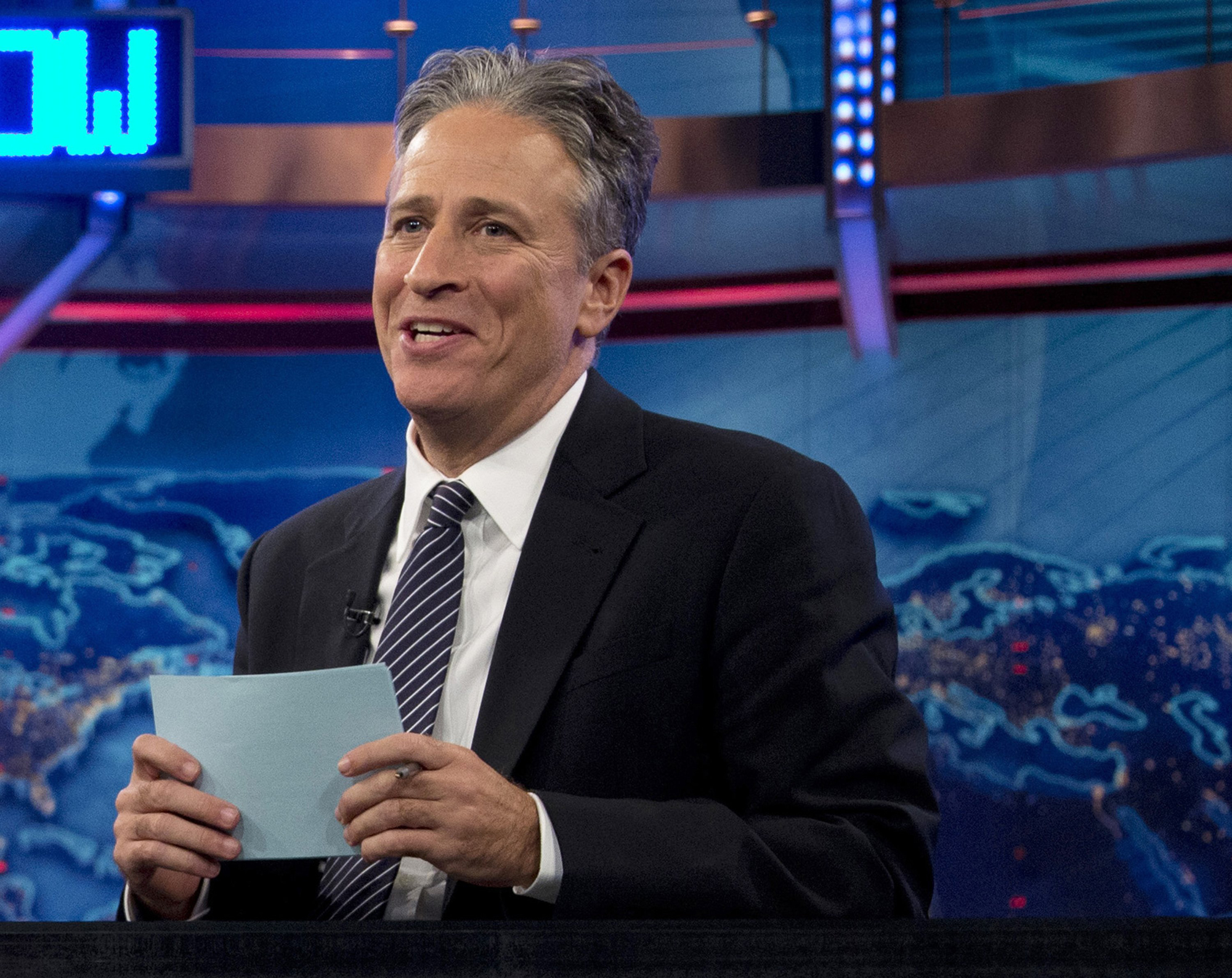
It’s not exactly a news flash to point out that the American news audience is politically polarized these days. A new poll out Monday from Quinnipiac University indicates as much–showing, for instance, that Fox News is simultaneously the most trusted and mistrusted TV outlet among those surveyed.
But nowadays, the poll goes on to show us, even the fake news audience has been polarized.
Along with the usual questions about trust in broadcast and cable news (more on that in a second), Quinnipiac asked respondents who they’d like to see replace Jon Stewart as host of The Daily Show. In first place was Tina Fey, who witheringly impersonated Sarah Palin on Saturday Night Live, and who was the choice of a plurality of Democrats. In second place: Dennis Miller, also an SNL Weekend Update veteran who’s built a reputation as a conservative snarkmeister–and who is the choice of a plurality of Republicans.
(Rounding out the poll’s choices were John Oliver, Craig Ferguson, Brian Williams and Chelsea Handler–all of whom, like Fey and Miller, are unlikely to actually get the job, which makes the 37% who answered “Don’t Know” the likely winners.)
A similar split applies to factual controversies in the real news. More Democrats believe Brian Williams should be allowed to return to air than believe he should not; it’s the opposite for Republicans. Reverse the situation on the question of whether Bill O’Reilly (also accused of falsifying or exagerrating war stories) should be fired or stay on the air. (Though in O’Reilly’s case the greatest number in both parties say they “haven’t heard enough,” a testament either to bipartisanship or to the fact that media stories are not as gripping to non-media people as journalists like to believe.)
As for the main body of the poll–whether respondents trust various TV outlets–the answers suggest the value in today’s media market of being a love-it-or-hate-it organization. Twenty percent of respondents trust Fox News a great deal, more than any competitor mentioned. Twenty-six percent trust it not at all, also greater than any other network in the poll.
All this reinforces something that struck me when the O’Reilly case emerged after the Williams one: that “trust” is too vague a catchall term to describe the different bonds different audiences have to their news outlets. O’Reilly and Williams both depend on the trust of their viewers, as do Fox and NBC–but not the same kind of trust.
Williams, and broadcast news outlets like NBC, have traditionally cultivated a kind of trust that might be better described as reliability, or believability, or authority: the belief that what they report as objective fact is fact, and that their judgment as to what news is important is more or less to be believed. O’Reilly, and Fox’s conservative commentators generally, foster a kind of trust that might be better described as loyalty, or faith, or identification: the belief that they have a correct worldview, that they see a larger truth in world events, that they may not be unbiased but will serve as a corrective to larger bias elsewhere. (The same kind of trust, for that matter, applies to a host like Stewart or Oliver.)
Think of one trust as the trust you have that when you turn on a tap, clean drinking water will come out. Think of the other as the trust you have in a favorite bartender who mixes you a drink and hears out your problems.
Quinnipiac’s poll isn’t the first to show us polarization around trust in the media; it won’t be the last. But the next time someone asks whether people trust a news outlet, the correct answer might be, “Depends which kind of trust you mean.”
More Must-Reads From TIME
- The 100 Most Influential People of 2024
- The Revolution of Yulia Navalnaya
- 6 Compliments That Land Every Time
- What's the Deal With the Bitcoin Halving?
- If You're Dating Right Now , You're Brave: Column
- The AI That Could Heal a Divided Internet
- Fallout Is a Brilliant Model for the Future of Video Game Adaptations
- Want Weekly Recs on What to Watch, Read, and More? Sign Up for Worth Your Time
Contact us at letters@time.com